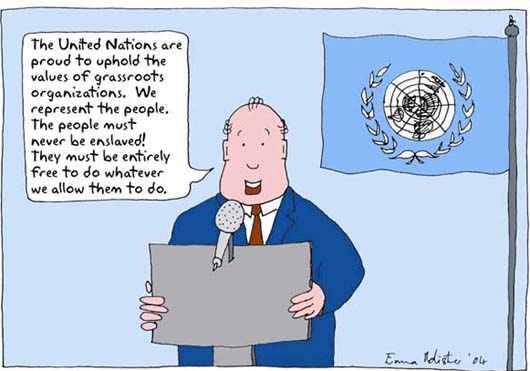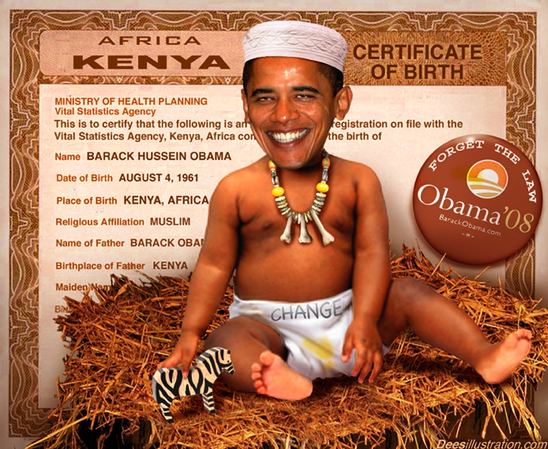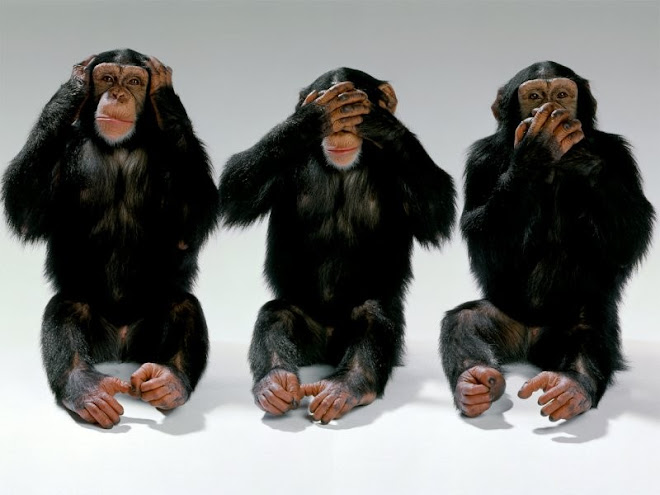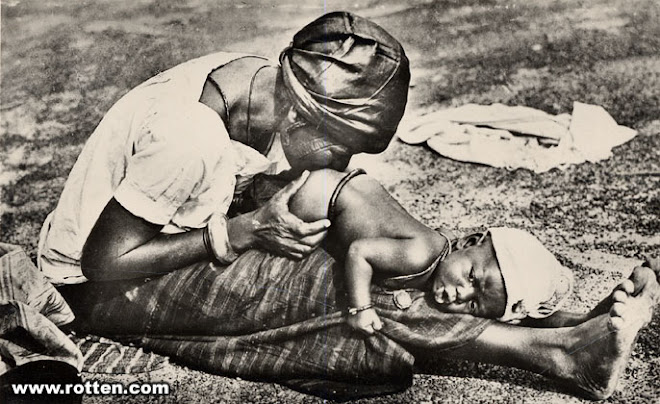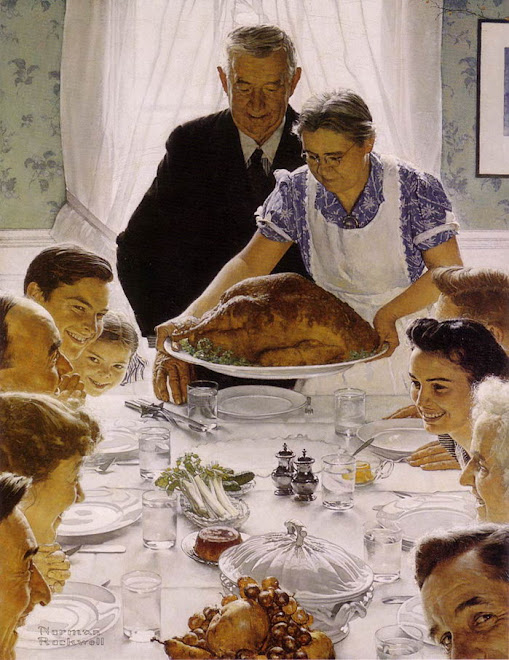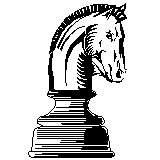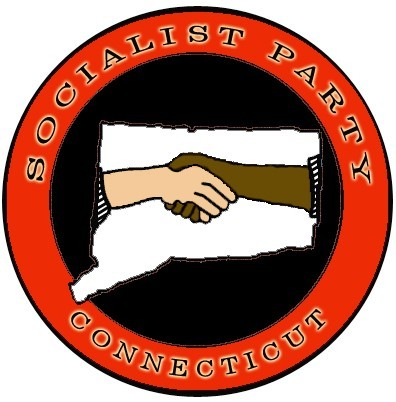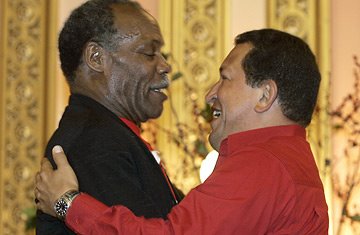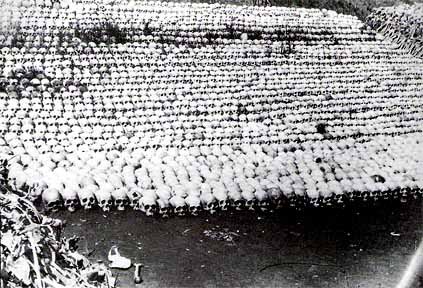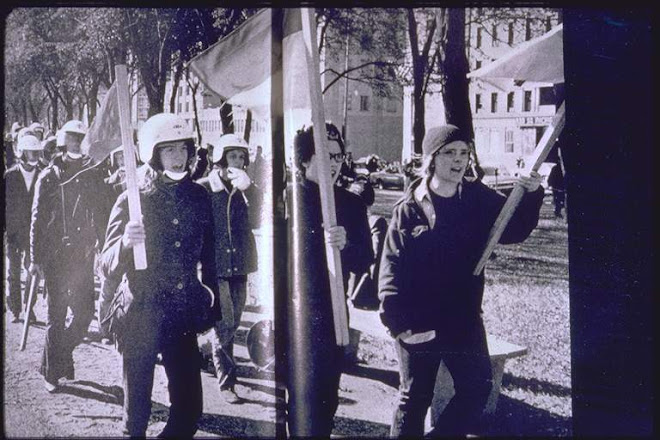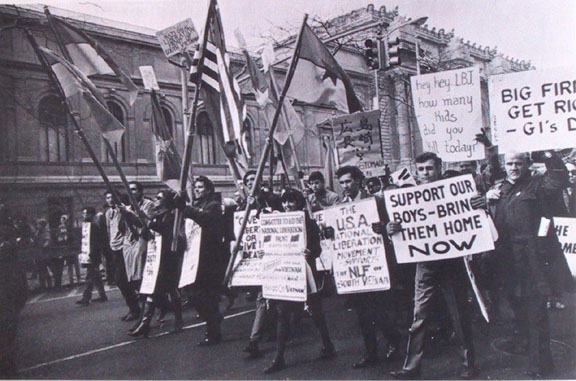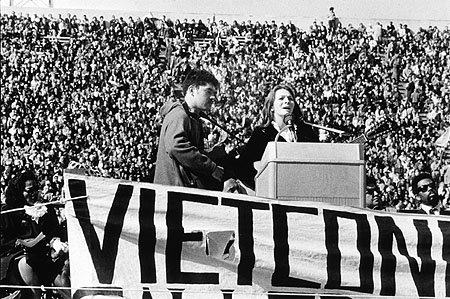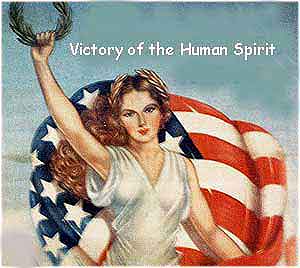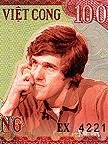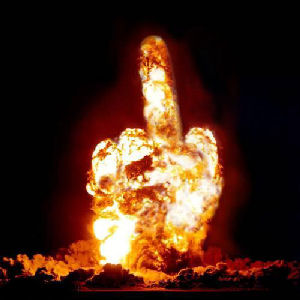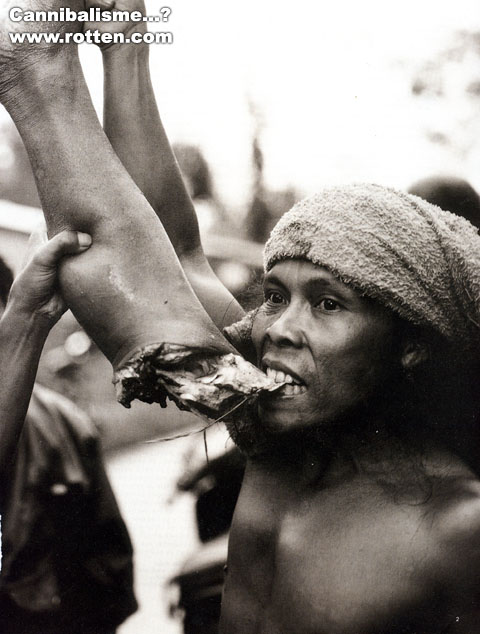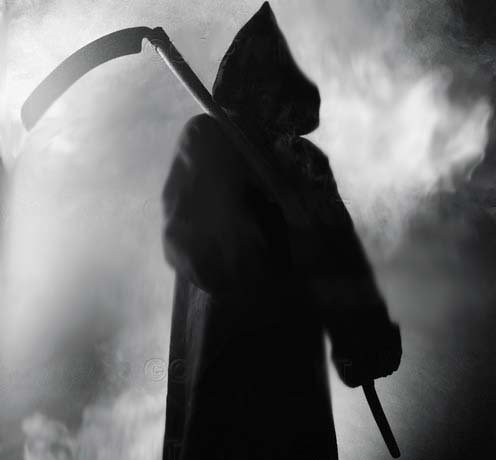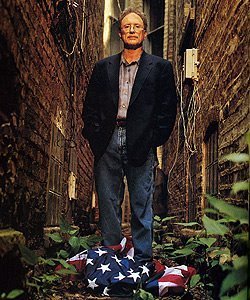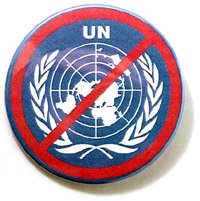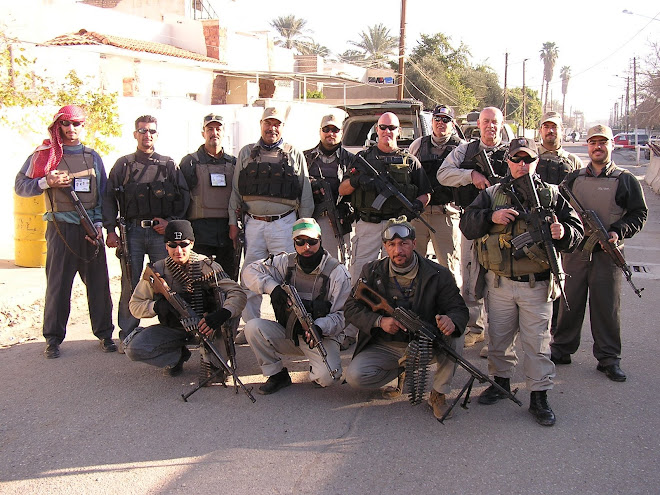Quotes by George Orwell
English essayist, novelist, & satirist (1903 - 1950)
Big Brother is watching you - right now.
Communist Party: All animals are equal but some animals are more equal than others.
Who controls the past controls the future. Who controls the present controls the past.
In the end the party would announce that 2 plus 2 made 5, and you would have to believe it. It was inevitable that they should make that claim, sooner or later, the logic of their position demanded it. George Orwell, in 1984
Communist Party: The quickest way of ending a war is to lose it.
Liberal: a power worshipper without power.
Advertising is the rattling of a stick inside a swill bucket.
On the whole human beings want to be good, but not too good and not quite all the time.
At age 50, every man has the face he deserves.
Saints should always be judged guilty until they are proved innocent.
Political language - and with variations this is true of all political parties, from Conservatives to Anarchists - is designed to make lies sound truthful and murder respectable, and to give an appearance of solid geometry to pure wind.
The greatest enemy of clear language is insincerity.
If liberty means anything at all, it means the right to tell people what they do not want to hear.
We sleep safe in our beds because rough men stand ready in the night to visit violence on those who would do us harm.
Power is not a means, it is an end. One does not establish a dictatorship in order to safeguard a revolution; one makes the revolution in order to establish the dictatorship. The object of persecution is persecution. The object of torture is torture. The object of power is power.
War is a way of shattering to pieces, or pouring into the stratosphere, or sinking in the depths of the sea, materials which might otherwise be used to make the masses too comfortable, and hence, in the long run, too intelligent.
Every generation imagines itself to be more intelligent than the one that went before it, and wiser than the one that comes after it.
To live is the rarest thing in the world. Most people exist, that is all.
To see what is in front of one's nose needs a constant struggle.
On the whole human beings want to be good, but not too good, and not quite all the time.
In times of universal deceit, telling the truth becomes a revolutionary act.
If you want to imagine the future [under socialism/communism], imagine a boot stamping on a human face forever.
It was a bright cold day in April, and the clocks were striking thirteen.
People sleep peaceably in their beds at night only because rough men stand ready to do violence on their behalf.
If people cannot write well, they cannot think well, and if they cannot think well, others will do their thinking for them.
In a time of universal deceit, telling the truth is a revolutionary act.
War is Peace, Freedom is Slavery, Ignorance is Strength
From the totalitarian point of view, history is something to be created rather than learned.
Freedom is the right to say two plus two make four. If granted, all else follows.
Being in a minority, even a minority of one, did not make you mad.
Perhaps one did not want to be loved so much as to be understood.
In general, the greater the understanding, the greater the delusion: the more intelligent, the less sane.
One does not establish a dictatorship in order to safeguard a revolution; one makes the revolution in order to establish a dictatorship.
The object of persecution is persecution. The object of torture is torture. The object of power is power.
What you say or do doesn't matter: only feelings matter.
They can make you say anything - ANYTHING - but they can't make you believe it.
Orthodoxy means not thinking - not needing to think. Orthodoxy is unconsciousness.
The war is not meant to be won, it is meant to be continuous.
Hierarchical society is only possible on the basis of poverty and ignorance.
The new version is the past and no different past can ever have existed.
In principle the war effort is always planned to keep society on the brink of starvation. The war is waged by the ruling group against its own subjects and its object is not the victory over either Eurasia or East Asia, but to keep the very structure of society intact.
No doubt alcohol, tobacco, and so forth, are things that a saint must avoid, but sainthood is a thing that human beings must avoid.
Orthodoxy means not thinking--not needing to think. Orthodoxy is unconsciousness.
He who controls the past controls the future.
If liberty means anything at all it means the right to tell people what they do not want to hear.
Words falls upon the facts like soft snow, blurring the outline and covering up all the details.
In certain kinds of writing, particularly in art criticism and literary criticism, it is normal to come across long passages which are almost completely lacking in meaning.
A scrupulous writer, in every sentence that he writes, will ask himself at least four questions, thus: 1. What am I trying to say? 2. What words will express it? 3. What image or idiom will make it clearer? 4. Is this image fresh enough to have an effect? An unscrupulous writer is the opposite.
The great enemy of clear language is insincerity. When there is a gap between one's real and one's declared aims, one turns as it were instinctively to long words and exhausted idioms, like a cuttlefish spurting out ink.
Political language -- and with variations this is true of all political parties, from Conservatives to Anarchists -- is designed to make lies sound truthful and murder respectable, and to give an appearance of solidity to pure wind.
The future is a boot smashing a human face forever.
When man turns tyrant it is his own freedom he destroys.
By lack of understanding they remained insane.
Who controls the past controls the future: who controls the present controls the past.
Certain backward areas have advanced, and various devices always in some way connected with warfare and police espionage have developed, but experiment and invention have largely stopped.
Sanity is not statistical.
..nor did he pause to reflect that hereditary aristocracies have always been short lived where as adoptive organizations such as the Catholic Church sometimes lasted for hundreds or thousands of years.
If both the past and the external world exist only in the mind, and if the mind itself is controllable – what then?
An autobiography is only to be trusted when it reveals something disgraceful. A man who gives a good account of himself is probably lying, since any life when viewed from the inside is simply a series of defeats.
Political language. . . is designed to make lies sound truthful and murder respectable, and to give an appearance of solidity to pure wind.
By the fourth decade of the twentieth century all the main currents of political thought were authoritarian. The earthly paradise had been discredited at exactly the moment when it became realizable.
Every new political theory, by whatever name it called itself, led back to hierarchy and regimentation. And in the general hardening of outlook that set in round about 1930, practices which had been long abandoned, in some cases for hundreds of years — imprisonment without trial, the use of war prisoners as slaves, public executions, torture to extract confessions, the use of hostages, and the deportation of whole populations — not only became common again, but were tolerated and even defended by people who considered themselves enlightened and progressive.
In the past no government had the power to keep its citizens under constant surveillance. The invention of print, however, made it easier to manipulate public opinion, and the film and the radio carried the process further.
With the development of television, and the technical advance which made it possible to receive and transmit simultaneously on the same instrument, private life came to an end.
Every citizen, or at least every citizen important enough to be worth watching, could be kept for twenty-four hours a day under the eyes of the police and in the sound of official propaganda, with all other channels of communication closed.
The possibility of enforcing not only complete obedience to the will of the State, but complete uniformity of opinion on all subjects, now existed for the first time.” 1984
In a world in which everyone worked short hours. Had enough to eat. Lived in a house with a bathroom and a refrigerator, and possessed a motor-car or even an aeroplane, the most obvious and perhaps the most important form of inequality would already have disappeared.
If it once became general, wealth would confer no distinction.
It was possible, no doubt, to imagine a society in which wealth, in the sense of personal possessions and luxuries, should be evenly distributed, while power remained in the hands of a small privileged caste. But in practice such a society could not long remain stable.
For if leisure and security were enjoyed by all alike, the great mass of human beings who are normally stupefied by poverty would become literate and would learn to think for themselves. And when once they had done this, they would sooner or later realize that the privileged minority had no function, and they would sweep it away. In the long run, a hierarchical society was only possible on a basis of poverty and ignorance. George Orwell 1984
The Revolution and the Party:
The Party seeks power entirely for its own sake.
We are not interested in the good of others; we are interested solely in power, not wealth or luxury or long life or happiness: only power, pure power.
We are different from all the oligarchies of the past, in that we know what we are doing.
All the others, even those who resembled ourselves, were cowards and hypocrites.
The German Nazis and the Russian Communists came very close to us in their methods, but they never had the courage to recognize their own motives.
They pretended, perhaps they even believed, that they had seized power unwillingly and for a limited time, and that just round the corner there lay a paradise where human beings would be free and equal.
We are not like that.
We know that no one ever seizes power with the intention of relinquishing it.
Power is not a means, it is an end.
One does not establish a dictatorship in order to safeguard a revolution; one makes the revolution in order to establish the dictatorship.
The object of persecution is persecution.
The object of torture is torture.
The object of power is power.
Now you begin to understand. - George Orwell 1984
Showing posts with label Thought Crime. Show all posts
Showing posts with label Thought Crime. Show all posts
Wednesday, November 19, 2008
George Orwell: The Revolution and the Party
The Revolution and the Party:
The Party seeks power entirely for its own sake.
The party is not interested in the good of others; we are interested solely in power, not wealth or luxury or long life or happiness: only power, pure power.
The Party is different from all the oligarchies of the past, in that we know what we are doing. All the others, even those who resembled ourselves, were cowards and hypocrites.
The German Nazis and the Russian Communists came very close to us in their methods, but they never had the courage to recognize their own motives.
They pretended, perhaps they even believed, that they had seized power unwillingly and for a limited time, and that just round the corner there lay a paradise where human beings would be free and equal.
The Party is not like that.
We know that no one ever seizes power with the intention of relinquishing it.
Power is not a means, it is an end.
One does not establish a dictatorship in order to safeguard a revolution; one makes the revolution in order to establish the dictatorship.
The object of persecution is persecution.
The object of torture is torture.
The object of power is power.
Now you begin to understand. - George Orwell 1984
The Party seeks power entirely for its own sake.
The party is not interested in the good of others; we are interested solely in power, not wealth or luxury or long life or happiness: only power, pure power.
The Party is different from all the oligarchies of the past, in that we know what we are doing. All the others, even those who resembled ourselves, were cowards and hypocrites.
The German Nazis and the Russian Communists came very close to us in their methods, but they never had the courage to recognize their own motives.
They pretended, perhaps they even believed, that they had seized power unwillingly and for a limited time, and that just round the corner there lay a paradise where human beings would be free and equal.
The Party is not like that.
We know that no one ever seizes power with the intention of relinquishing it.
Power is not a means, it is an end.
One does not establish a dictatorship in order to safeguard a revolution; one makes the revolution in order to establish the dictatorship.
The object of persecution is persecution.
The object of torture is torture.
The object of power is power.
Now you begin to understand. - George Orwell 1984
Friday, November 7, 2008
Political Correctness: Origins
The Origins of Political Correctness
An Accuracy in Academia Address by Bill Lind
Variations of this speech have been delivered to various AIA conferences including the 2000 Conservative University at American University
Where does all this stuff that you’ve heard about this morning – the victim feminism, the gay rights movement, the invented statistics, the rewritten history, the lies, the demands, all the rest of it – where does it come from?
For the first time in our history, Americans have to be fearful of what they say, of what they write, and of what they think. They have to be afraid of using the wrong word, a word denounced as offensive or insensitive, or racist, sexist, or homophobic.
We have seen other countries, particularly in this century, where this has been the case. And we have always regarded them with a mixture of pity, and to be truthful, some amusement, because it has struck us as so strange that people would allow a situation to develop where they would be afraid of what words they used.
But we now have this situation in this country. We have it primarily on college campuses, but it is spreading throughout the whole society. Were does it come from? What is it?
We call it "Political Correctness." The name originated as something of a joke, literally in a comic strip, and we tend still to think of it as only half-serious. In fact, it’s deadly serious. It is the great disease of our century, the disease that has left tens of millions of people dead in Europe, in Russia, in China, indeed around the world. It is the disease of ideology. PC is not funny. PC is deadly serious.
If we look at it analytically, if we look at it historically, we quickly find out exactly what it is. Political Correctness is cultural Marxism. It is Marxism translated from economic into cultural terms. It is an effort that goes back not to the 1960s and the hippies and the peace movement, but back to World War I. If we compare the basic tenets of Political Correctness with classical Marxism the parallels are very obvious.
First of all, both are totalitarian ideologies. The totalitarian nature of Political Correctness is revealed nowhere more clearly than on college campuses, many of which at this point are small ivy covered North Koreas, where the student or faculty member who dares to cross any of the lines set up by the gender feminist or the homosexual-rights activists, or the local black or Hispanic group, or any of the other sainted "victims" groups that PC revolves around, quickly find themselves in judicial trouble.
Within the small legal system of the college, they face formal charges – some star-chamber proceeding – and punishment. That is a little look into the future that Political Correctness intends for the nation as a whole.
Indeed, all ideologies are totalitarian because the essence of an ideology (I would note that conservatism correctly understood is not an ideology) is to take some philosophy and say on the basis of this philosophy certain things must be true – such as the whole of the history of our culture is the history of the oppression of women. Since reality contradicts that, reality must be forbidden.
It must become forbidden to acknowledge the reality of our history. People must be forced to live a lie, and since people are naturally reluctant to live a lie, they naturally use their ears and eyes to look out and say, "Wait a minute. This isn’t true. I can see it isn’t true," the power of the state must be put behind the demand to live a lie. That is why ideology invariably creates a totalitarian state.
Second, the cultural Marxism of Political Correctness, like economic Marxism, has a single factor explanation of history. Economic Marxism says that all of history is determined by ownership of means of production. Cultural Marxism, or Political Correctness, says that all history is determined by power, by which groups defined in terms of race, sex, etc., have power over which other groups. Nothing else matters. All literature, indeed, is about that. Everything in the past is about that one thing.
Third, just as in classical economic Marxism certain groups, i.e. workers and peasants, are a priori good, and other groups, i.e., the bourgeoisie and capital owners, are evil. In the cultural Marxism of Political Correctness certain groups are good – feminist women, (only feminist women, non-feminist women are deemed not to exist) blacks, Hispanics, homosexuals.
These groups are determined to be "victims," and therefore automatically good regardless of what any of them do. Similarly, white males are determined automatically to be evil, thereby becoming the equivalent of the bourgeoisie in economic Marxism.
Fourth, both economic and cultural Marxism rely on expropriation. When the classical Marxists, the communists, took over a country like Russia, they expropriated the bourgeoisie, they took away their property. Similarly, when the cultural Marxists take over a university campus, they expropriate through things like quotas for admissions.
When a white student with superior qualifications is denied admittance to a college in favor of a black or Hispanic who isn’t as well qualified, the white student is expropriated. And indeed, affirmative action, in our whole society today, is a system of expropriation. White owned companies don’t get a contract because the contract is reserved for a company owned by, say, Hispanics or women. So expropriation is a principle tool for both forms of Marxism.
And finally, both have a method of analysis that automatically gives the answers they want. For the classical Marxist, it’s Marxist economics. For the cultural Marxist, it’s deconstruction. Deconstruction essentially takes any text, removes all meaning from it and re-inserts any meaning desired.
So we find, for example, that all of Shakespeare is about the suppression of women, or the Bible is really about race and gender. All of these texts simply become grist for the mill, which proves that "all history is about which groups have power over which other groups."
So the parallels are very evident between the classical Marxism that we’re familiar with in the old Soviet Union and the cultural Marxism that we see today as Political Correctness.
But the parallels are not accidents. The parallels did not come from nothing. The fact of the matter is that Political Correctness has a history, a history that is much longer than many people are aware of outside a small group of academics who have studied this. And the history goes back, as I said, to World War I, as do so many of the pathologies that are today bringing our society, and indeed our culture, down.
Marxist theory said that when the general European war came (as it did come in Europe in 1914), the working class throughout Europe would rise up and overthrow their governments – the bourgeois governments – because the workers had more in common with each other across the national boundaries than they had in common with the bourgeoisie and the ruling class in their own country.
Well, 1914 came and it didn’t happen. Throughout Europe, workers rallied to their flag and happily marched off to fight each other. The Kaiser shook hands with the leaders of the Marxist Social Democratic Party in Germany and said there are no parties now, there are only Germans. And this happened in every country in Europe. So something was wrong.
Marxists knew by definition it couldn’t be the theory. In 1917, they finally got a Marxist coup in Russia and it looked like the theory was working, but it stalled again. It didn’t spread and when attempts were made to spread immediately after the war, with the Spartacist uprising in Berlin, with the Bela Kun government in Hungary, with the Munich Soviet, the workers didn’t support them.
So the Marxists’ had a problem. And two Marxist theorists went to work on it: Antonio Gramsci in Italy and Georg Lukacs in Hungary.
Gramsci said the workers will never see their true class interests, as defined by Marxism, until they are freed from Western culture, and particularly from the Christian religion – that they are blinded by culture and religion to their true class interests.
Lukacs, who was considered the most brilliant Marxist theorist since Marx himself, said in 1919, "Who will save us from Western Civilization?" He also theorized that the great obstacle to the creation of a Marxist paradise was the culture: Western civilization itself.
Lukacs gets a chance to put his ideas into practice, because when the home grown Bolshevik Bela Kun government is established in Hungary in 1919, he becomes deputy commissar for culture, and the first thing he did was introduce sex education into the Hungarian schools.
This ensured that the workers would not support the Bela Kun government, because the Hungarian people looked at this aghast, workers as well as everyone else. But he had already made the connection that today many of us are still surprised by, that we would consider the "latest thing."
In 1923 in Germany, a think-tank is established that takes on the role of translating Marxism from economic into cultural terms, that creates Political Correctness as we know it today, and essentially it has created the basis for it by the end of the 1930s.
This comes about because the very wealthy young son of a millionaire German trader by the name of Felix Weil has become a Marxist and has lots of money to spend. He is disturbed by the divisions among the Marxists, so he sponsors something called the First Marxist Work Week, where he brings Lukacs and many of the key German thinkers together for a week, working on the differences of Marxism.
And he says, "What we need is a think-tank." Washington is full of think tanks and we think of them as very modern. In fact they go back quite a ways. He endows an institute, associated with Frankfurt University, established in 1923, that was originally supposed to be known as the Institute for Marxism.
But the people behind it decided at the beginning that it was not to their advantage to be openly identified as Marxist. The last thing Political Correctness wants is for people to figure out it’s a form of Marxism. So instead they decide to name it the Institute for Social Research.
Weil is very clear about his goals. In 1971, he wrote to Martin Jay the author of a principle book on the Frankfurt School, as the Institute for Social Research soon becomes known informally, and he said, "I wanted the institute to become known, perhaps famous, due to its contributions to Marxism." Well, he was successful.
The first director of the Institute, Carl Grunberg, an Austrian economist, concluded his opening address, according to Martin Jay, "by clearly stating his personal allegiance to Marxism as a scientific methodology." Marxism, he said, would be the ruling principle at the Institute, and that never changed.
The initial work at the Institute was rather conventional, but in 1930 it acquired a new director named Max Horkheimer, and Horkheimer’s views were very different. He was very much a Marxist renegade. The people who create and form the Frankfurt School are renegade Marxists. They’re still very much Marxist in their thinking, but they’re effectively run out of the party. Moscow looks at what they are doing and says, "Hey, this isn’t us, and we’re not going to bless this."
Horkheimer’s initial heresy is that he is very interested in Freud, and the key to making the translation of Marxism from economic into cultural terms is essentially that he combined it with Freudism. Again, Martin Jay writes, "If it can be said that in the early years of its history, the Institute concerned itself primarily with an analysis of bourgeois society’s socio-economic sub-structure," – and I point out that Jay is very sympathetic to the Frankfurt School, I’m not reading from a critic here – "in the years after 1930 its primary interests lay in its cultural superstructure. Indeed the traditional Marxist formula regarding the relationship between the two was brought into question by Critical Theory."
The stuff we’ve been hearing about this morning – the radical feminism, the women’s studies departments, the gay studies departments, the black studies departments – all these things are branches of Critical Theory.
What the Frankfurt School essentially does is draw on both Marx and Freud in the 1930s to create this theory called Critical Theory.
The term is ingenious because you’re tempted to ask, "What is the theory?"
The theory is to criticize.
The theory is that the way to bring down Western culture and the capitalist order is not to lay down an alternative. They explicitly refuse to do that. They say it can’t be done, that we can’t imagine what a free society -their definition of a free society - would look like.
As long as we’re living under repression – the repression of a capitalistic economic order which creates (in their theory) the Freudian condition, the conditions that Freud describes in individuals of repression – we can’t even imagine it.
What Critical Theory is about is simply criticizing.
It calls for the most destructive criticism possible, in every possible way, designed to bring the current order down. And, of course, when we hear from the feminists that the whole of society is just out to get women and so on, that kind of criticism is a derivative of Critical Theory. It is all coming from the 1930s, not the 1960s.
Other key members who join up around this time are Theodore Adorno, and, most importantly, Erich Fromm and Herbert Marcuse. Fromm and Marcuse introduce an element which is central to Political Correctness, and that’s the sexual element. Particularly Marcuse, who in his own writings calls for a society of "polymorphous perversity," that is his definition of the future of the world that they want to create.
Marcuse in particular by the 1930s is writing some very extreme stuff on the need for sexual liberation, but this runs through the whole Institute. So do most of the themes we see in Political Correctness, again in the early 30s.
In Fromm’s view, masculinity and femininity were not reflections of ‘essential’ sexual differences, as the Romantics had thought. They were derived instead from differences in life functions, which were in part socially determined." Sex is a construct; sexual differences are a construct.
Another example is the emphasis we now see on environmentalism. "Materialism as far back as Hobbes had led to a manipulative dominating attitude toward nature."
That was Horkhemier writing in 1933 in ‘Materialismus und Moral.’ "The theme of man’s domination of nature," according to Jay,” was to become a central concern of the Frankfurt School in subsequent years." "Horkheimer’s antagonism to the fetishization of labor, (here’s where they’re obviously departing from Marxist orthodoxy) expressed another dimension of his materialism, the demand for human, sensual happiness."
In one of his most trenchant essays, ‘Egoism and the Movement for Emancipation,’ written in 1936, Horkeimer "discussed the hostility to personal gratification inherent in bourgeois culture." And he specifically referred to the Marquis de Sade, favorably, for his "protest…against asceticism in the name of a higher morality."
How does all of this stuff flood in here? How does it flood into our universities, and indeed into our lives today?
The members of the Frankfurt School are Marxist, they are also, to a man, Jewish.
In 1933 the Nazis came to power in Germany, and not surprisingly they shut down the Institute for Social Research. And its members fled. They fled to New York City, and the Institute was reestablished there in 1933 with help from Columbia University.
And the members of the Institute, gradually through the 1930s, though many of them remained writing in German, shift their focus from Critical Theory about German society, destructive criticism about every aspect of that society, to Critical Theory directed toward American society.
There is another very important transition when the war comes. Some of them go to work for the government, including Herbert Marcuse, who became a key figure in the OSS (the predecessor to the CIA), and some, including Horkheimer and Adorno, move to Hollywood.
These origins of Political Correctness would probably not mean too much to us today except for two subsequent events. The first was the student rebellion in the mid-1960s, which was driven largely by resistance to the draft and the Vietnam War.
But the student rebels needed theory of some sort. They couldn’t just get out there and say, "Hell no we won’t go," they had to have some theoretical explanation behind it. Very few of them were interested in wading through Das Kapital. Classical, economic Marxism is not light, and most of the radicals of the 60s were not deep.
Fortunately for them, and unfortunately for our country today, and not just in the university, Herbert Marcuse remained in America when the Frankfurt School relocated back to Frankfurt after the war.
And whereas Theo. Adorno in Germany is appalled by the student rebellion when it breaks out there – when the student rebels come into Adorno’s classroom, he calls the police and has them arrested – Herbert Marcuse, who remained here, saw the 60s student rebellion as the great chance. He saw the opportunity to take the work of the Frankfurt School and make it the theory of the New Left in the United States.
One of Marcuse’s books was the key book. It virtually became the bible of the SDS and the student rebels of the 60s. That book was, ‘Eros and Civilization.’ Marcuse argues that under a capitalistic order (he downplays the Marxism very strongly here, it is subtitled, ‘A Philosophical Inquiry into Freud,’ but the framework is Marxist), repression is the essence of that order and that gives us the person Freud describes – the person with all the hang-ups, the neuroses, because his sexual instincts are repressed.
We can envision a future, if we can only destroy this existing oppressive order, in which we liberate eros, we liberate libido, in which we have a world of "polymorphous perversity," in which you can "do you own thing."
And by the way, in that world there will no longer be work, only play. What a wonderful message for the radicals of the mid-60s! They’re students, they’re baby-boomers, and they’ve grown up never having to worry about anything except eventually having to get a job.
And here is a guy writing in a way they can easily follow. He doesn’t require them to read a lot of heavy Marxism and tells them everything they want to hear which is essentially, "Do your own thing," "If it feels good do it," and "You never have to go to work."
By the way, Marcuse is also the man who creates the phrase, "Make love, not war." Coming back to the situation people face on campus, Marcuse defines "liberating tolerance" as intolerance for anything coming from the Right and tolerance for anything coming from the Left. Marcuse joined the Frankfurt School, in 1932 (if I remember right). So, all of this goes back to the 1930s.
In conclusion, America today is in the throws of the greatest and direst transformation in its history. We are becoming an ideological state, a country with an official state ideology enforced by the power of the state.
In "hate crimes" we now have people serving jail sentences for political thoughts. And the Congress is now moving to expand that category ever further. Affirmative action is part of it. The terror against anyone who dissents from Political Correctness on campus is part of it. It’s exactly what we have seen happen in Russia, in Germany, in Italy, in China, and now it’s coming here. And we don’t recognize it because we call it Political Correctness and laugh it off. My message today is that it’s not funny, it’s here, it’s growing and it will eventually destroy, as it seeks to destroy, everything that we have ever defined as our freedom and our culture.
An Accuracy in Academia Address by Bill Lind
Variations of this speech have been delivered to various AIA conferences including the 2000 Conservative University at American University
Where does all this stuff that you’ve heard about this morning – the victim feminism, the gay rights movement, the invented statistics, the rewritten history, the lies, the demands, all the rest of it – where does it come from?
For the first time in our history, Americans have to be fearful of what they say, of what they write, and of what they think. They have to be afraid of using the wrong word, a word denounced as offensive or insensitive, or racist, sexist, or homophobic.
We have seen other countries, particularly in this century, where this has been the case. And we have always regarded them with a mixture of pity, and to be truthful, some amusement, because it has struck us as so strange that people would allow a situation to develop where they would be afraid of what words they used.
But we now have this situation in this country. We have it primarily on college campuses, but it is spreading throughout the whole society. Were does it come from? What is it?
We call it "Political Correctness." The name originated as something of a joke, literally in a comic strip, and we tend still to think of it as only half-serious. In fact, it’s deadly serious. It is the great disease of our century, the disease that has left tens of millions of people dead in Europe, in Russia, in China, indeed around the world. It is the disease of ideology. PC is not funny. PC is deadly serious.
If we look at it analytically, if we look at it historically, we quickly find out exactly what it is. Political Correctness is cultural Marxism. It is Marxism translated from economic into cultural terms. It is an effort that goes back not to the 1960s and the hippies and the peace movement, but back to World War I. If we compare the basic tenets of Political Correctness with classical Marxism the parallels are very obvious.
First of all, both are totalitarian ideologies. The totalitarian nature of Political Correctness is revealed nowhere more clearly than on college campuses, many of which at this point are small ivy covered North Koreas, where the student or faculty member who dares to cross any of the lines set up by the gender feminist or the homosexual-rights activists, or the local black or Hispanic group, or any of the other sainted "victims" groups that PC revolves around, quickly find themselves in judicial trouble.
Within the small legal system of the college, they face formal charges – some star-chamber proceeding – and punishment. That is a little look into the future that Political Correctness intends for the nation as a whole.
Indeed, all ideologies are totalitarian because the essence of an ideology (I would note that conservatism correctly understood is not an ideology) is to take some philosophy and say on the basis of this philosophy certain things must be true – such as the whole of the history of our culture is the history of the oppression of women. Since reality contradicts that, reality must be forbidden.
It must become forbidden to acknowledge the reality of our history. People must be forced to live a lie, and since people are naturally reluctant to live a lie, they naturally use their ears and eyes to look out and say, "Wait a minute. This isn’t true. I can see it isn’t true," the power of the state must be put behind the demand to live a lie. That is why ideology invariably creates a totalitarian state.
Second, the cultural Marxism of Political Correctness, like economic Marxism, has a single factor explanation of history. Economic Marxism says that all of history is determined by ownership of means of production. Cultural Marxism, or Political Correctness, says that all history is determined by power, by which groups defined in terms of race, sex, etc., have power over which other groups. Nothing else matters. All literature, indeed, is about that. Everything in the past is about that one thing.
Third, just as in classical economic Marxism certain groups, i.e. workers and peasants, are a priori good, and other groups, i.e., the bourgeoisie and capital owners, are evil. In the cultural Marxism of Political Correctness certain groups are good – feminist women, (only feminist women, non-feminist women are deemed not to exist) blacks, Hispanics, homosexuals.
These groups are determined to be "victims," and therefore automatically good regardless of what any of them do. Similarly, white males are determined automatically to be evil, thereby becoming the equivalent of the bourgeoisie in economic Marxism.
Fourth, both economic and cultural Marxism rely on expropriation. When the classical Marxists, the communists, took over a country like Russia, they expropriated the bourgeoisie, they took away their property. Similarly, when the cultural Marxists take over a university campus, they expropriate through things like quotas for admissions.
When a white student with superior qualifications is denied admittance to a college in favor of a black or Hispanic who isn’t as well qualified, the white student is expropriated. And indeed, affirmative action, in our whole society today, is a system of expropriation. White owned companies don’t get a contract because the contract is reserved for a company owned by, say, Hispanics or women. So expropriation is a principle tool for both forms of Marxism.
And finally, both have a method of analysis that automatically gives the answers they want. For the classical Marxist, it’s Marxist economics. For the cultural Marxist, it’s deconstruction. Deconstruction essentially takes any text, removes all meaning from it and re-inserts any meaning desired.
So we find, for example, that all of Shakespeare is about the suppression of women, or the Bible is really about race and gender. All of these texts simply become grist for the mill, which proves that "all history is about which groups have power over which other groups."
So the parallels are very evident between the classical Marxism that we’re familiar with in the old Soviet Union and the cultural Marxism that we see today as Political Correctness.
But the parallels are not accidents. The parallels did not come from nothing. The fact of the matter is that Political Correctness has a history, a history that is much longer than many people are aware of outside a small group of academics who have studied this. And the history goes back, as I said, to World War I, as do so many of the pathologies that are today bringing our society, and indeed our culture, down.
Marxist theory said that when the general European war came (as it did come in Europe in 1914), the working class throughout Europe would rise up and overthrow their governments – the bourgeois governments – because the workers had more in common with each other across the national boundaries than they had in common with the bourgeoisie and the ruling class in their own country.
Well, 1914 came and it didn’t happen. Throughout Europe, workers rallied to their flag and happily marched off to fight each other. The Kaiser shook hands with the leaders of the Marxist Social Democratic Party in Germany and said there are no parties now, there are only Germans. And this happened in every country in Europe. So something was wrong.
Marxists knew by definition it couldn’t be the theory. In 1917, they finally got a Marxist coup in Russia and it looked like the theory was working, but it stalled again. It didn’t spread and when attempts were made to spread immediately after the war, with the Spartacist uprising in Berlin, with the Bela Kun government in Hungary, with the Munich Soviet, the workers didn’t support them.
So the Marxists’ had a problem. And two Marxist theorists went to work on it: Antonio Gramsci in Italy and Georg Lukacs in Hungary.
Gramsci said the workers will never see their true class interests, as defined by Marxism, until they are freed from Western culture, and particularly from the Christian religion – that they are blinded by culture and religion to their true class interests.
Lukacs, who was considered the most brilliant Marxist theorist since Marx himself, said in 1919, "Who will save us from Western Civilization?" He also theorized that the great obstacle to the creation of a Marxist paradise was the culture: Western civilization itself.
Lukacs gets a chance to put his ideas into practice, because when the home grown Bolshevik Bela Kun government is established in Hungary in 1919, he becomes deputy commissar for culture, and the first thing he did was introduce sex education into the Hungarian schools.
This ensured that the workers would not support the Bela Kun government, because the Hungarian people looked at this aghast, workers as well as everyone else. But he had already made the connection that today many of us are still surprised by, that we would consider the "latest thing."
In 1923 in Germany, a think-tank is established that takes on the role of translating Marxism from economic into cultural terms, that creates Political Correctness as we know it today, and essentially it has created the basis for it by the end of the 1930s.
This comes about because the very wealthy young son of a millionaire German trader by the name of Felix Weil has become a Marxist and has lots of money to spend. He is disturbed by the divisions among the Marxists, so he sponsors something called the First Marxist Work Week, where he brings Lukacs and many of the key German thinkers together for a week, working on the differences of Marxism.
And he says, "What we need is a think-tank." Washington is full of think tanks and we think of them as very modern. In fact they go back quite a ways. He endows an institute, associated with Frankfurt University, established in 1923, that was originally supposed to be known as the Institute for Marxism.
But the people behind it decided at the beginning that it was not to their advantage to be openly identified as Marxist. The last thing Political Correctness wants is for people to figure out it’s a form of Marxism. So instead they decide to name it the Institute for Social Research.
Weil is very clear about his goals. In 1971, he wrote to Martin Jay the author of a principle book on the Frankfurt School, as the Institute for Social Research soon becomes known informally, and he said, "I wanted the institute to become known, perhaps famous, due to its contributions to Marxism." Well, he was successful.
The first director of the Institute, Carl Grunberg, an Austrian economist, concluded his opening address, according to Martin Jay, "by clearly stating his personal allegiance to Marxism as a scientific methodology." Marxism, he said, would be the ruling principle at the Institute, and that never changed.
The initial work at the Institute was rather conventional, but in 1930 it acquired a new director named Max Horkheimer, and Horkheimer’s views were very different. He was very much a Marxist renegade. The people who create and form the Frankfurt School are renegade Marxists. They’re still very much Marxist in their thinking, but they’re effectively run out of the party. Moscow looks at what they are doing and says, "Hey, this isn’t us, and we’re not going to bless this."
Horkheimer’s initial heresy is that he is very interested in Freud, and the key to making the translation of Marxism from economic into cultural terms is essentially that he combined it with Freudism. Again, Martin Jay writes, "If it can be said that in the early years of its history, the Institute concerned itself primarily with an analysis of bourgeois society’s socio-economic sub-structure," – and I point out that Jay is very sympathetic to the Frankfurt School, I’m not reading from a critic here – "in the years after 1930 its primary interests lay in its cultural superstructure. Indeed the traditional Marxist formula regarding the relationship between the two was brought into question by Critical Theory."
The stuff we’ve been hearing about this morning – the radical feminism, the women’s studies departments, the gay studies departments, the black studies departments – all these things are branches of Critical Theory.
What the Frankfurt School essentially does is draw on both Marx and Freud in the 1930s to create this theory called Critical Theory.
The term is ingenious because you’re tempted to ask, "What is the theory?"
The theory is to criticize.
The theory is that the way to bring down Western culture and the capitalist order is not to lay down an alternative. They explicitly refuse to do that. They say it can’t be done, that we can’t imagine what a free society -their definition of a free society - would look like.
As long as we’re living under repression – the repression of a capitalistic economic order which creates (in their theory) the Freudian condition, the conditions that Freud describes in individuals of repression – we can’t even imagine it.
What Critical Theory is about is simply criticizing.
It calls for the most destructive criticism possible, in every possible way, designed to bring the current order down. And, of course, when we hear from the feminists that the whole of society is just out to get women and so on, that kind of criticism is a derivative of Critical Theory. It is all coming from the 1930s, not the 1960s.
Other key members who join up around this time are Theodore Adorno, and, most importantly, Erich Fromm and Herbert Marcuse. Fromm and Marcuse introduce an element which is central to Political Correctness, and that’s the sexual element. Particularly Marcuse, who in his own writings calls for a society of "polymorphous perversity," that is his definition of the future of the world that they want to create.
Marcuse in particular by the 1930s is writing some very extreme stuff on the need for sexual liberation, but this runs through the whole Institute. So do most of the themes we see in Political Correctness, again in the early 30s.
In Fromm’s view, masculinity and femininity were not reflections of ‘essential’ sexual differences, as the Romantics had thought. They were derived instead from differences in life functions, which were in part socially determined." Sex is a construct; sexual differences are a construct.
Another example is the emphasis we now see on environmentalism. "Materialism as far back as Hobbes had led to a manipulative dominating attitude toward nature."
That was Horkhemier writing in 1933 in ‘Materialismus und Moral.’ "The theme of man’s domination of nature," according to Jay,” was to become a central concern of the Frankfurt School in subsequent years." "Horkheimer’s antagonism to the fetishization of labor, (here’s where they’re obviously departing from Marxist orthodoxy) expressed another dimension of his materialism, the demand for human, sensual happiness."
In one of his most trenchant essays, ‘Egoism and the Movement for Emancipation,’ written in 1936, Horkeimer "discussed the hostility to personal gratification inherent in bourgeois culture." And he specifically referred to the Marquis de Sade, favorably, for his "protest…against asceticism in the name of a higher morality."
How does all of this stuff flood in here? How does it flood into our universities, and indeed into our lives today?
The members of the Frankfurt School are Marxist, they are also, to a man, Jewish.
In 1933 the Nazis came to power in Germany, and not surprisingly they shut down the Institute for Social Research. And its members fled. They fled to New York City, and the Institute was reestablished there in 1933 with help from Columbia University.
And the members of the Institute, gradually through the 1930s, though many of them remained writing in German, shift their focus from Critical Theory about German society, destructive criticism about every aspect of that society, to Critical Theory directed toward American society.
There is another very important transition when the war comes. Some of them go to work for the government, including Herbert Marcuse, who became a key figure in the OSS (the predecessor to the CIA), and some, including Horkheimer and Adorno, move to Hollywood.
These origins of Political Correctness would probably not mean too much to us today except for two subsequent events. The first was the student rebellion in the mid-1960s, which was driven largely by resistance to the draft and the Vietnam War.
But the student rebels needed theory of some sort. They couldn’t just get out there and say, "Hell no we won’t go," they had to have some theoretical explanation behind it. Very few of them were interested in wading through Das Kapital. Classical, economic Marxism is not light, and most of the radicals of the 60s were not deep.
Fortunately for them, and unfortunately for our country today, and not just in the university, Herbert Marcuse remained in America when the Frankfurt School relocated back to Frankfurt after the war.
And whereas Theo. Adorno in Germany is appalled by the student rebellion when it breaks out there – when the student rebels come into Adorno’s classroom, he calls the police and has them arrested – Herbert Marcuse, who remained here, saw the 60s student rebellion as the great chance. He saw the opportunity to take the work of the Frankfurt School and make it the theory of the New Left in the United States.
One of Marcuse’s books was the key book. It virtually became the bible of the SDS and the student rebels of the 60s. That book was, ‘Eros and Civilization.’ Marcuse argues that under a capitalistic order (he downplays the Marxism very strongly here, it is subtitled, ‘A Philosophical Inquiry into Freud,’ but the framework is Marxist), repression is the essence of that order and that gives us the person Freud describes – the person with all the hang-ups, the neuroses, because his sexual instincts are repressed.
We can envision a future, if we can only destroy this existing oppressive order, in which we liberate eros, we liberate libido, in which we have a world of "polymorphous perversity," in which you can "do you own thing."
And by the way, in that world there will no longer be work, only play. What a wonderful message for the radicals of the mid-60s! They’re students, they’re baby-boomers, and they’ve grown up never having to worry about anything except eventually having to get a job.
And here is a guy writing in a way they can easily follow. He doesn’t require them to read a lot of heavy Marxism and tells them everything they want to hear which is essentially, "Do your own thing," "If it feels good do it," and "You never have to go to work."
By the way, Marcuse is also the man who creates the phrase, "Make love, not war." Coming back to the situation people face on campus, Marcuse defines "liberating tolerance" as intolerance for anything coming from the Right and tolerance for anything coming from the Left. Marcuse joined the Frankfurt School, in 1932 (if I remember right). So, all of this goes back to the 1930s.
In conclusion, America today is in the throws of the greatest and direst transformation in its history. We are becoming an ideological state, a country with an official state ideology enforced by the power of the state.
In "hate crimes" we now have people serving jail sentences for political thoughts. And the Congress is now moving to expand that category ever further. Affirmative action is part of it. The terror against anyone who dissents from Political Correctness on campus is part of it. It’s exactly what we have seen happen in Russia, in Germany, in Italy, in China, and now it’s coming here. And we don’t recognize it because we call it Political Correctness and laugh it off. My message today is that it’s not funny, it’s here, it’s growing and it will eventually destroy, as it seeks to destroy, everything that we have ever defined as our freedom and our culture.
Subscribe to:
Posts (Atom)




